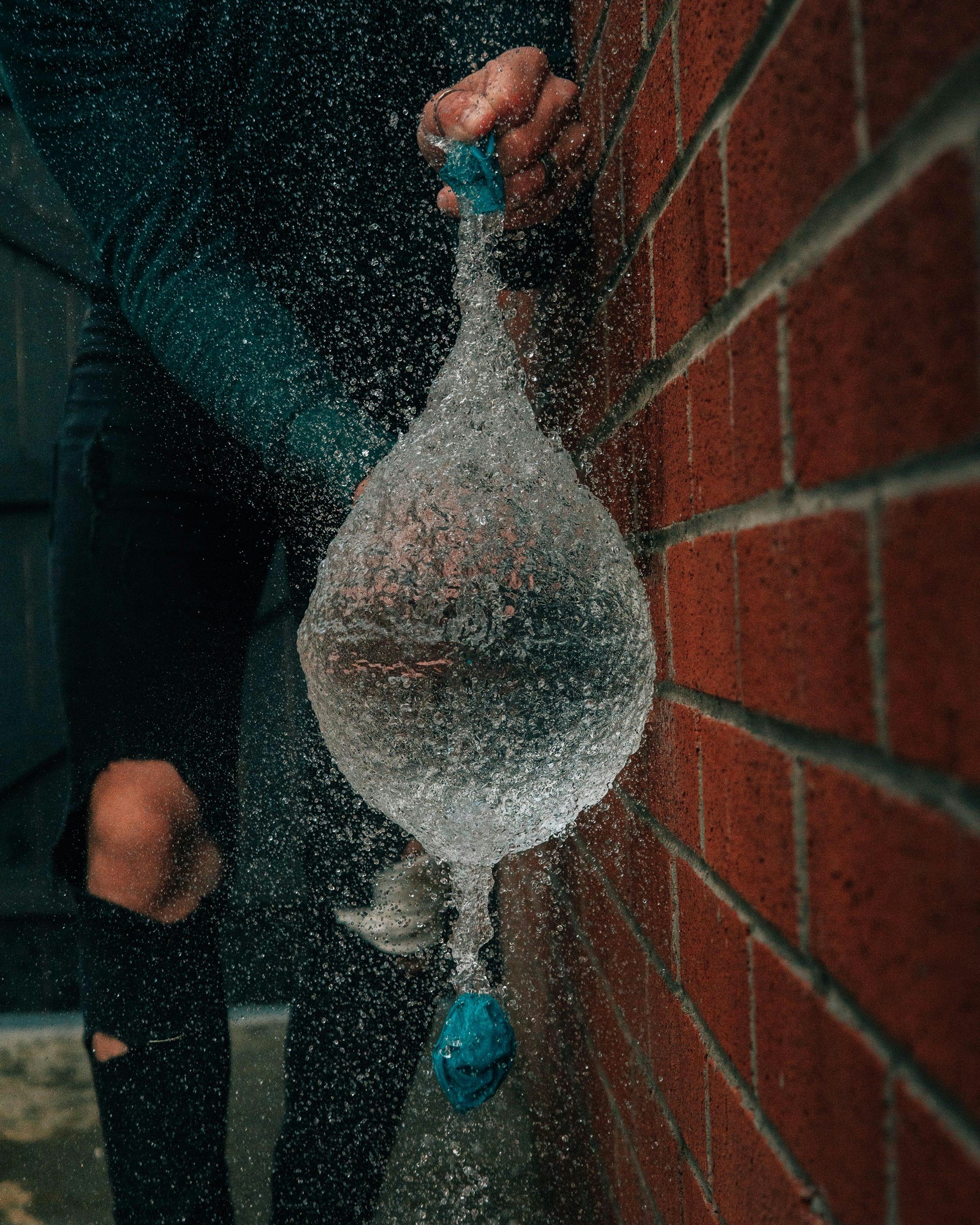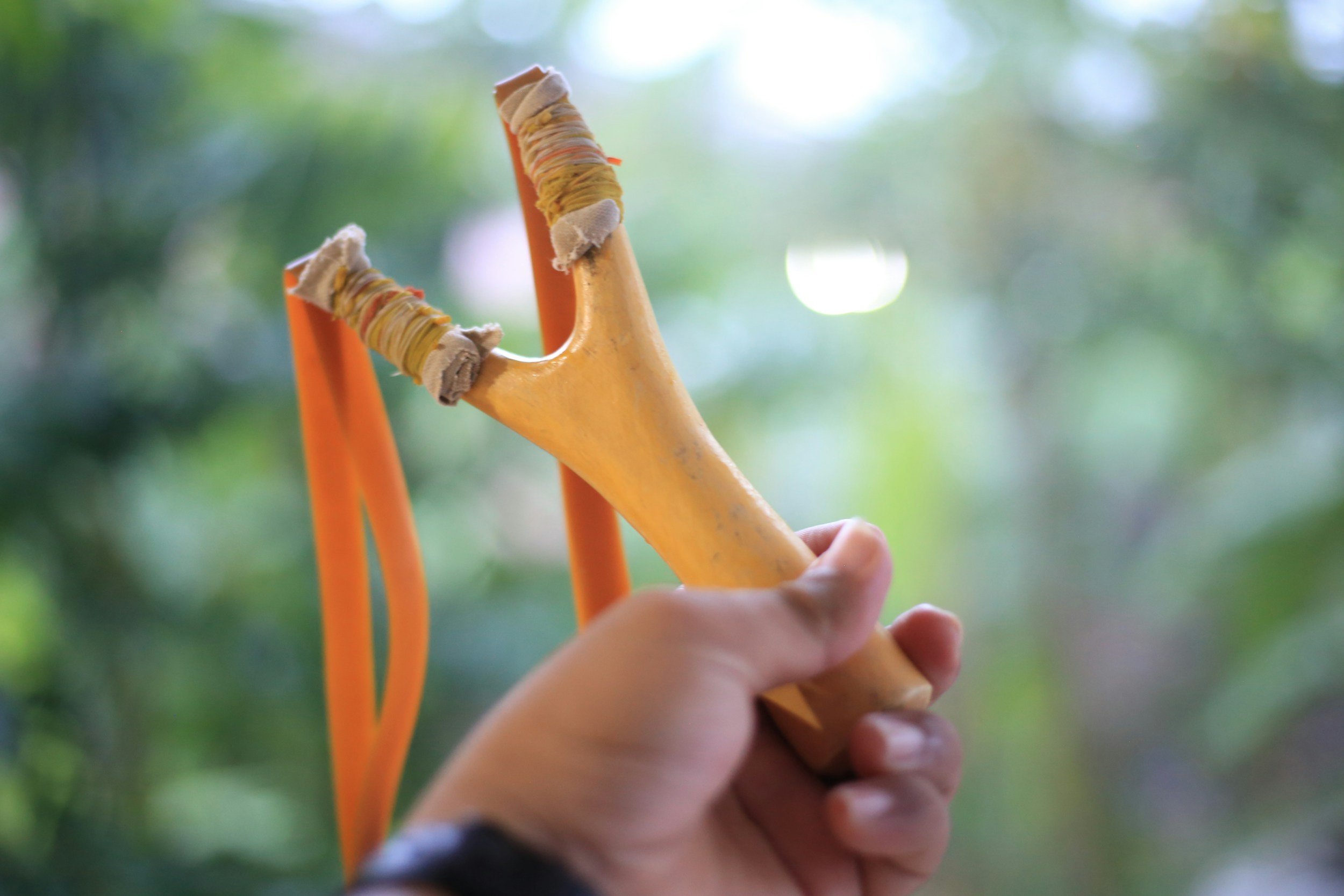
Knots and Spurs
Repeated pressurization or constant tension on tissue can often result in problems. In some way, shape, or form our tissues require nutrition which arrives in the form of blood flow. Should we shunt that, things can get rather uncomfortable. Soft tissue knots and bone spurs are the first things that come to mind.


Testing Possibilities
Assessing range of motion is a common test provided by a multitude of health care providers. Understanding that nothing moves in isolation should deter most from the idea that one joint is the cause of a problem. The test actually reveals possibility. A distilled interpretation of a very complex system.

A Slipped Disc
Now let’s say you apply pressure to the same region repeatedly, to the point where the skin of said balloon starts to become thin. Water slowly starts to make its way out of the balloon into the surrounding environment. No biggie for a while, shift the pressures again and it moves back inside the balloon. If enough water moves out however, it can reach a critical point where the momentum carries a significant portion away from the center.

Headaches
The vertebrae in your neck attach to the base of your head, and if those vertebrae are not moving sufficiently that may place focal stresses anywhere they attach to. An example that resonates with most folks is the position we all tend to acquire as we sit at a computer for long periods of time. Some parts of your neck may sink forward, while your head fails to keep up, compressing the back of your head down toward your neck.

Pain as a Point of Reference
Pain is a focal point when it arrives, sometimes there is no ability to focus on anything else. One way to reimagine the experience is to consider all of the other areas of your body that are not in pain. How might they be complicit in the sensation?




Pressure
We’re all under pressure, some more than others. Without pressure we would not be able to move, because moving requires the ability to shift pressures from place to place. It sounds abstract, but at the foundation of movement is utilizing our anatomical arrangement to manipulate pressures to get where we want to be.

Equilibrium
Balance is not necessarily something to strive for. There may be moments where things do appear to be equal, and usually that is a transitional time. We need non-uniformity in order to operate within the natural world.

Glutes
Glute development is all the rage these days. It is very much in vogue to increase the size and to alter the shape of this aspect of anatomy. Most of us can probably appreciate why, even if it really comes down to vanity. The unappreciated part of this type of training is that it affects the mechanics of the system. Traditionally there are three different glute muscles, and they all contribute to how we move. Training them to get really good at their job may limit the effectiveness of reciprocal musculature.

Velocity
Most of us are stretched thin for time during a typical day. There are things to do and not enough time to do them. We attempt to move faster in order to get our stuff done, however that comes at the cost of producing force. In general terms, we sacrifice some strength to cover more ground. As time goes by this becomes our default strategy, we focalize where we generate force and non-uniform pressures develop.

Sciatica
Sciatica is another one of those diagnoses that gets thrown around without real consideration of what it means. There are a number of ways to irritate neural tissue like the sciatic nerve, however there are also many solutions to altering the circumstances that led to the problem.

Evolving Anatomy
As time moves forward, that ability to evolve slows down and that may reduce our choices. Although it is difficult to let go of old habits, the signal that it is time to move on is an opportunity to try your hand at something new. Change may not be easy, but it is necessary.

Tight Hamstrings
This is one of the most predictable diagnoses in orthopedics and is attributed to a number of painful issues. I cannot speak to the origin of this proposed problem, however it is pervasive in its application to low back pain, knee pain and many others. Unfortunately having tight hamstrings is an overly reductive viewpoint on what may actually be causing the problem.

The Smudge
I work with folks who have recently developed symptoms and are looking for relief. Those symptoms are often a product of the smudge. They have glued regions of their body together, such that joints are no longer, that two bones nearly fuse. By fuse I mean taking two pieces of silly putty and smushing them together. They become one, and although they may now be more capable of producing force, they have lost their refined touch. The sensations that are sent to the system revolve around one object versus the original two. The dexterity in that area has been reduced as the smudge evolves.

On Tendonitis
Your body moves with select strategies, and those strategies are reinforced over time as success mounts. If success begins to wane without an alternative option, tissues may begin to be exposed to repeated, non-uniform loading. This is where things can get ugly quickly.

Form vs. Flow
Concentrated effort and the application of high levels of energy are needed sometimes. Everything comes at a cost, and it might be your own energy you pay with. Acknowledging that intensity may not always be the solution, that giving yourself up to the situation may be just as effective in certain situations. Allowing movement to occur and minimizing effort could be a more efficient way to accomplish a given objective.

Memory
We have some ideas about what structures in the brain store information, however the long-term location and eventual retrieval is still an enigma. One of the more interesting ways to consider it, is to imagine the brain being an elastic structure that is imprintable. It may be that it is like clay before it sets, being entirely malleable and able to recreate events based off of that imprint.

